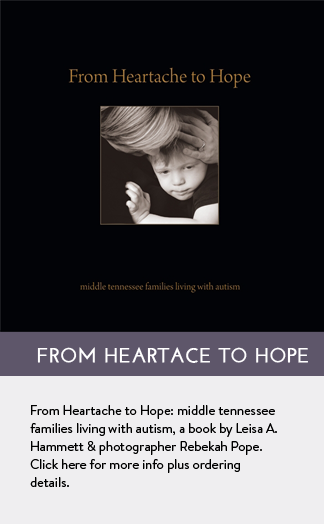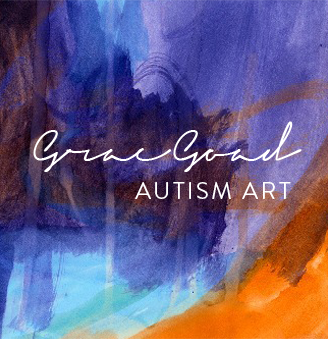Sometimes to make a point about the needs of the disAbility community, we have to tell stories that are very real but aren't so pretty. And, every time we open up to reporters, there is chance for human error and misinterpretation. That said, I have been on both sides of the reporter pad and I think the reporter did an excellent job with a complicated story. She completed the 30-minute interview with me at 4:30 p.m., filed her story sometime that evening and it appeared as follows the next morning. I do not recall ever saying that Grace had self-injured. She has, however, but would not be classified as "self-injurious." Two advocate friends suggested I ask for a correction when I clarified this on my Facebook wall. However, I left it because this is very true for many families much more desparate in their wait for services. Also, I do not advocate the use of the word "suffer" in regards to autism. It is the way my daughter is born. Yet, such wording is, again, part of the surrender that I believe must occur when taking one's story public.
From The Tennessean by Anita Wadhwani. Front page story, Thursday, October 24, 2013
At 19 years old, suffering from autism, severe speech and language
disorders and other intellectual disabilities, Grace Walker Goad has
been on a waiting list for services from the state Department of
Intellectual and Developmental Disabilities for more than half her life.
She
cannot cook, drive, take public transportation or communicate. In the
past, she has tried to injure herself. Federal rules allow her to attend
public school until she is 21. Without help from the state agency, her
mother, Leisa Hammett, is worried about what comes next.
Goad’s
10-year wait for services is not unusual, advocates say. She is one of
more than 7,100 state residents with intellectual disabilities who
cannot take care of themselves and are waiting for a long-term-care
program run by DIDD through special funding from the federal Medicaid
program.
Some have been on the list since 1994, waiting for one of 8,447 slots.
The
waiting list is one of nine “serious problems” identified in a newly
released audit of the agency by the state comptroller’s office.
Currently, only those in “crisis” situations are allowed off the list.
The agency defines “crisis” as someone who is homeless, whose caregiver
has died or who is a danger to himself or others.
Goad does not
meet those criteria, but she still needs professional care that her
mother, a self-employed writer, said she alone cannot provide.
“What
happens to a lot of these young adults after they leave school is they
just sit on the sofa,” said Hammett, 53, who cares for her daughter
around the clock when Goad is not in school. “What comes with a lack of
services is a regression of all those skills that federal government
requires schools to provide.
“We unfortunately live in a state that has no plan. Tennessee has no safety net.”
More budget cuts
The rest of the story is here.




